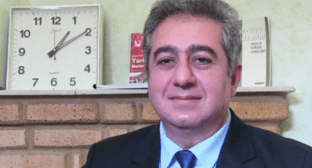19 June 2021, 13:24
Political analysts assess Georgia's potential as mediator in Karabakh settlement
For the first time, Georgia has acted as a mediator in the Karabakh conflict by facilitating the return home of Armenian prisoners of war (POWs) in exchange for minefield maps. The role of Azerbaijani-Armenian mediator will increase Georgia's status in the international arena, but it is associated with some risk, since unsuccessful mediation efforts can complicate Georgia's relations with its neighbours, political analysts have noted.
The "Caucasian Knot" has reported that on June 12, Azerbaijan exchanged 15 Armenian POWs for the maps showing the location of mines placed in the Agdam District. The Azerbaijani Ministry of Foreign Affairs (MFA) expressed gratitude for the support in the implementation of this humanitarian action to the Georgian Government headed by the Prime Minister, Irakli Garibashvili.
Valery Chechelashvili, a member of the Georgian NGO "Foundation for Strategic and International Studies", believes that one should not exaggerate the Georgia's role in the exchange of POWs for maps. However, he has pointed out that Georgia has good relations with both Armenia and Azerbaijan.
By offering itself as a mediator, Georgia cannot actively get involved in the delicate situation in Southern Caucasus, Irakli Menagarishvili, an expert from another NGO, believes.
"For 28 years, Georgia has maintained emphasized neutrality in Azerbaijani-Armenian relations," the blogger "Wind from Apsheron" that he runs on the "Caucasian Knot", wrote in his post "Georgia comes out of neutrality". He has noted that Tbilisi's ban on the use of its territory for transporting weapons to Armenia had to do with this. "Therefore, it was surprising that Tbilisi took part in the extradition of 15 Armenian saboteurs in exchange for minefield maps of the Agdam District of Azerbaijan," the blogger has noted.
This article was originally published on the Russian page of 24/7 Internet agency ‘Caucasian Knot’ on June 18, 2021 at 10:03 pm MSK. To access the full text of the article, click here.
Author: Inna Kukudjanova Source: CK correspondent




